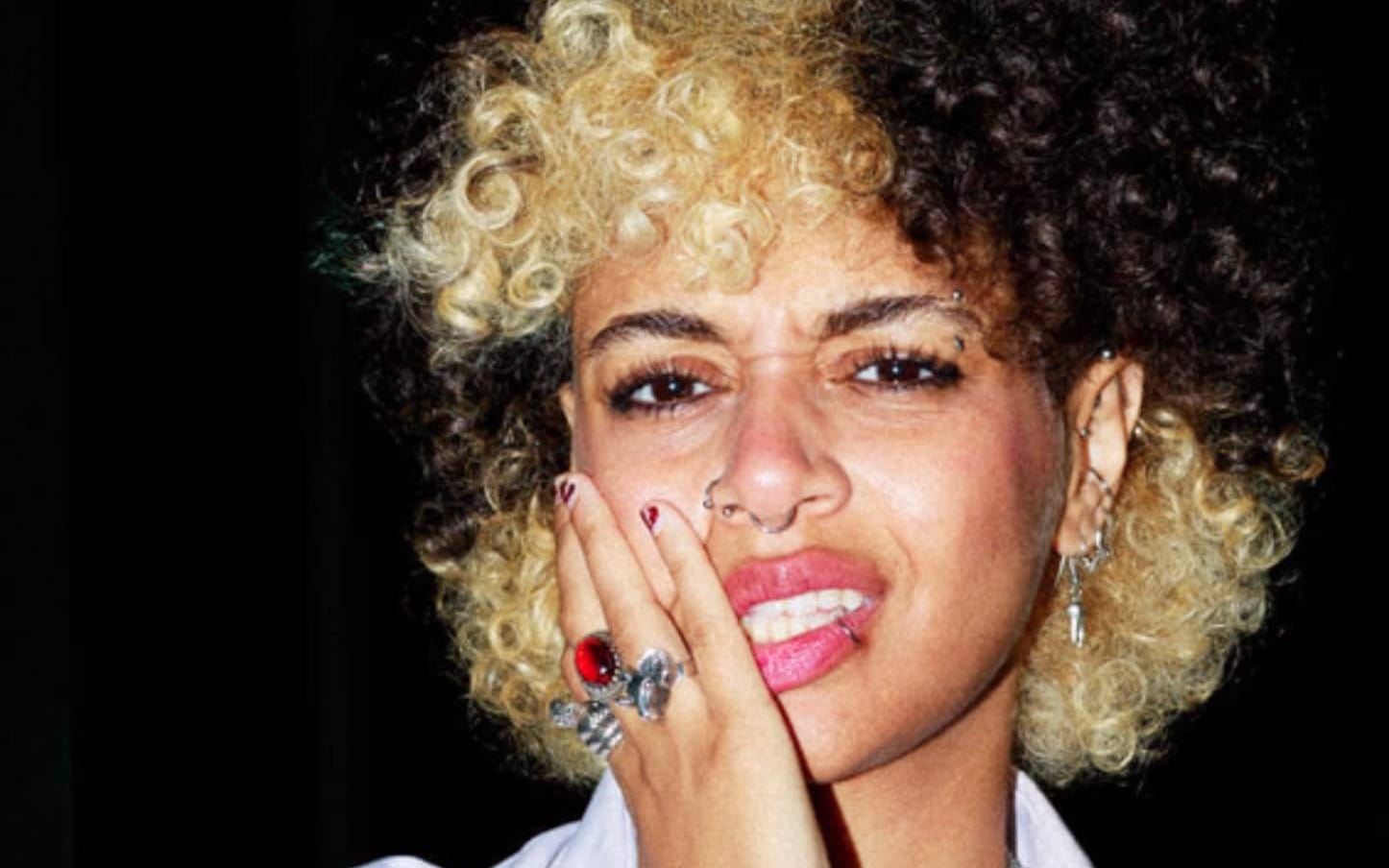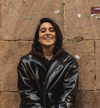In this interview, Nxdia drives us through how complimenting a stranger and not caring about what others think - themes they have captured in their songwriting - could be the way forward.
Miriam Boulos: I’m curious about a particular song titled “what’s it like?”. What inspired the process of writing it?
Nxdia: It was very much like, you know, when you’re a kid and you're soaking everything in and you're just like,” Oh, this must be normal because most people are doing this”, you get regimented and how you see people? I used to watch people and find them really cool. So there was a scout leader I had, and she wore her jeans in a certain way that was super fancy or this girl would wear her hair in a certain way. These things are nuances in your kind of characteristics. I'm obsessive and I try to recreate them. Yeah, doesn't really work, it's not genuine. I don't know everything I find special about people I'd want to have be special about me as well which is fucking weird. But I just wanted to ask: what's it like not even knowing that you have that kind of magnetism to you?
MB: So have you ever complimented a stranger?
N: All the time! Literally I'm so bad for it. But, I will say something happened earlier this year that made me like okay, you know what, I'm gonna compliment strangers until the day I die. I was on holiday and this girl was walking around and she had a sick buzzcut. It was blonde, beautiful, and it looked amazing. It was really edgy and cool and seeing someone wear feminine clothing with such androgynous haircut, I was like: “Oh, amazing”. She was quite young so that’s such a bold thing because that's when you’re most worried about people's opinion. So I went up and told her: “Oh my god, I love your hair”. She was like, “Thank you so much!” and I went away and she went away like no lingering, or anything. Then her mom came up to me afterwards, she was like: “Did you compliment my daughter’s hair?” I was worried it was gonna be the kind of mum that's' like “Don't encourage her”, you know? But she turned to me and was like: “My daughter actually just went through chemotherapy.” I was crying. I was literally sobbing. But she was like: “You don't know how much that meant.” She was crying. I was crying. I was like, I can't not compliment people when I think about it. I can't not do that. It's never in a weary way, it's always in a - wanting to celebrate something about someone kinda - way. Yeah, I'm never gonna stop.
MB: You never really know what a person is going through anyways, so why not do it?
N: Also, no one knows that you're staring at them because you think they're cool, unless you say something…
MB: How did you decide on the sound and style for this song then? Were there any special musical influences that played in?
N: I don't think there was a specific one for “what’s it like?”. I think it was the second song me and my friend whose producer name is RNDM started that day and it was feeling a bit like we've not landed on the right idea yet. We were listening to a lot of random pop at the time. Can't remember if it was anyone specific, or not. Then I was thinking of this girl in high school that was so cool and everyone was so obsessed with her… That’s kinda what guided the song as he was playing around with a synth-y beat.
MB: You've briefly mentioned finding beauty in the Arabic language. This one has little bits of Arabic that are seamlessly blended. How does your connection with the Arabic language influence your songwriting and the way you communicate your emotions through your music?
N: You know, it's strange. I’m bilingual. When I'm at home, I'm speaking in both languages. I'm half doing all the like, the Arab/English thing. I was just like, well, if I can do that at home and that's what I feel most like myself, I need to put it in the music because that's how our brains think. I hate it when people are like: “Oh, what language do you think in?” What do you mean? Like in both, in all? Because it's like having an extra limb in a way, because you wouldn't even think about the fact that you just have it, you know., It’s just something that you stretch that you lean on, more or less. It's very strange.
MB: You’ve spoken about challenging stereotypes whether the Arab identity or others, and preconceived notions about identity in general, how do you think your music would contribute to breaking these sorts of stereotypes?
N: I think even in a subtle way. When you're listening and when you understand Arabic, it's obvious, I'm talking about a woman most of the time, it's a very gendered language. I sometimes do it on purpose, sometimes I'm a bit more cautious just because I'm like: “Well, you know exactly what I'm saying, without me having to say it and you know what it means”. I feel like I have the opportunity and the privilege of talking about my identity online without fear and without fear of repercussion. My family is great, everyone's really on board. Because the messages that I get are always from people who are scared, you know, rightfully so. To be able to have that kind of hint and that kind of discussion in the songs that people are listening to so they know exactly what I mean by when we're talking about these things, and then being able to go into my platform and talk about being queer, being Arab, and being Egyptian born, all this stuff is just vital. All I want to do is make sure people can live in peace, if I'm being honest. Because it's not me who’s suffering. It's people who are living in countries where they can get imprisoned or whatever, you know.
MB: After watching your music videos, this mission of yours becomes obvious as well. Are there specific themes or messages related to your identity, I would say, as a queer artist, that you're able to convey through your music?
N: I think it's fluidity. I appreciate the idea of people knowing who they are and having a strong identity. But unfortunately, I think now, especially in this climate, it kind of feels as though once you say you’re something, you have to be that thing forever. It feels regimen, which has nothing to do with being a person first of all, or like being yourself. I really want to channel the freedom of being fluid and being able to be whoever you want to be and like who you like, you know? In the grand scheme of things, if people want to do certain things, and they're not harming themselves or anyone else, why do you care? Reflect, look inward!
MB: Well, that's an important one. We live in a world of stereotypes, boxes, labeling. I think this is what makes people feel safe. It's important to have those types of representations, but also, they do put you in certain cages somehow.
N: Yeah, absolutely. I agree. You get people who are like: “How did you know you were this?” I just took time to figure out, and you know what? I might not be “this” in seven months or in seven years or whatever. I would never torture myself over shit like that because I am who I am and I'm happy with that.
MB: So who are the artists you look up to or just the ones you highly admire?
N: There's so many. Obviously, there's My Chemical Romance, Fall Out Boy, I loved them when I was a teenager. But P!NK? P!NK... I don't know what it was. I think it was the first time I've seen a tomboy. She was so cool. It was the “So What” music video, I watched it and then I fell into this rabbit hole of all her old music and stuff. Stromae is an amazing artist. Then recently, I've been listening to Hole and I fucking love Hole. They're so good.
The Smashing Pumpkins are really cool, too. And there’s this beautiful song called “Betnadini Tany Leh” which is a traditional Arabic song but it was a cover by an artist called Donia. I knew one song growing up and it was that song. There was something about the way she sang it and the fact that she didn’t change the lyrics because it was a song originally about a man. I was fixated on this.
MB: What other messages do you hope will resonate with people listening to your songs?
N: I'd hope it was them feeling as though they were connected to something that was bigger than themselves. If I'm being honest, the whole point is community. I remember what I felt like when I was 13 and I was just like, “I'm a freak, there's something wrong with me”, but whatever. You carry that into adulthood, and you end up kind of feeling as though you're the only one who's the weird one in the room, and everyone else understands what's going on. So, it can even help people feel a little bit like they're not on their own or like they're part of something so much bigger than themselves, that would be the dream. Because no one cares. I don't know how to explain this to people. Because then people go like, “Oh my God, how do you do this? Like, I always cringe at myself” and I'm like, “No one cares, they're not thinking about the post from 2019.” That's fine, and if they do care it’s really worrying!
MB: Do you have any upcoming concerts? Tell me about your live shows, is this something you enjoy doing?
N: I fucking love it, it’s really fun. I've got a headline show with Jodie Bryan on the 25th that's sold out. I love live performances because I get to see people. At my last performance, one of the loveliest girls, Clara, comes through and shows me her arm. She's got In The Flesh tattooed on. I just stood there like, “What is going on?”. Man, I cried like a baby. I love meeting up with fans after concerts. I wanna squeeze you until you can’t breathe!!
MB: Looking ahead for the rest of the year, and after this dark, pop yet vulnerable soft EP, what can we anticipate from you next?
N: I’m working on something now about gender identity. Who knows, I’ve got all my sessions coming up, we'll see what stands out! I'm just doing a lot of music and doing a lot of shows. I’m excited for next year, we’re gonna have fun with it!







Comments